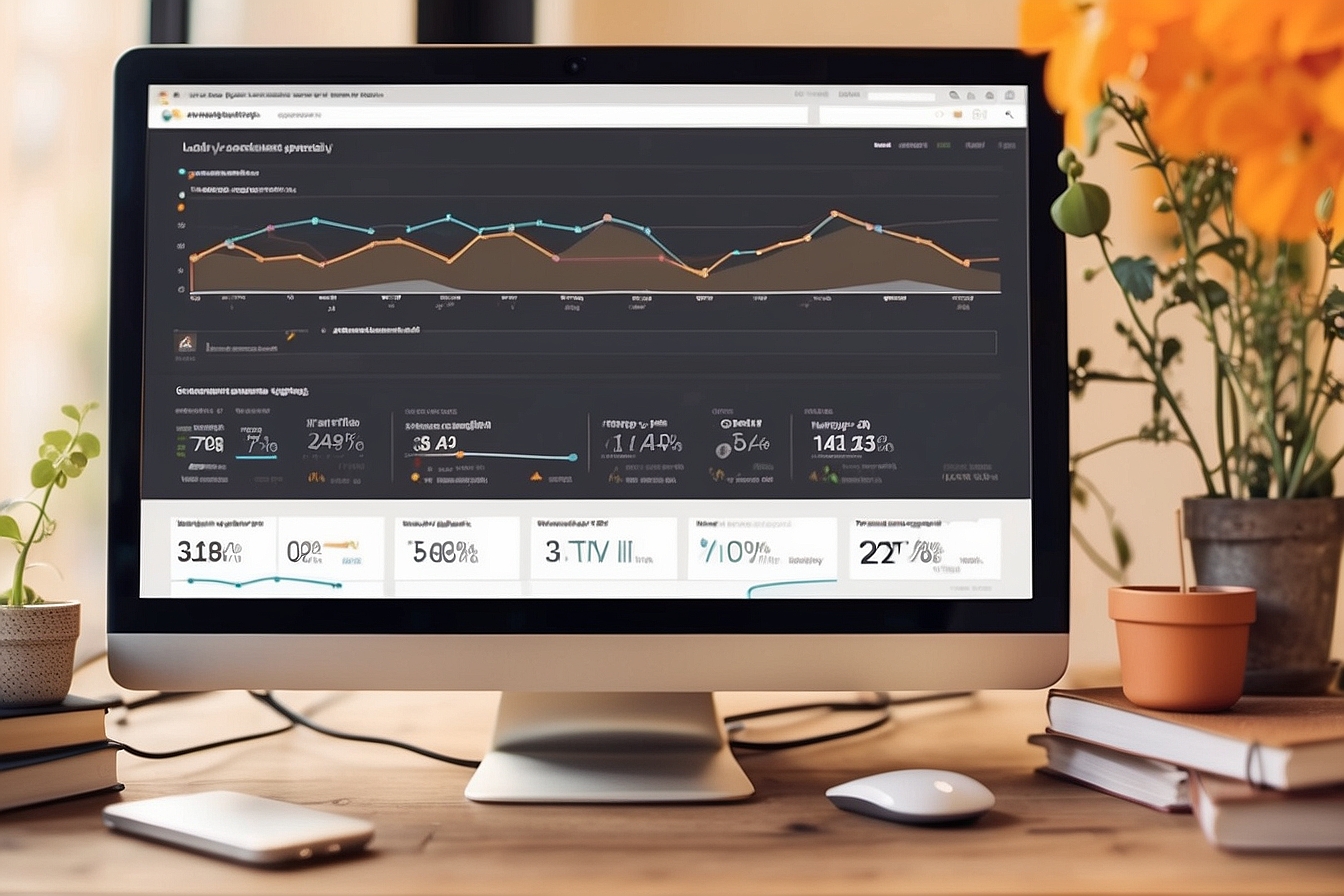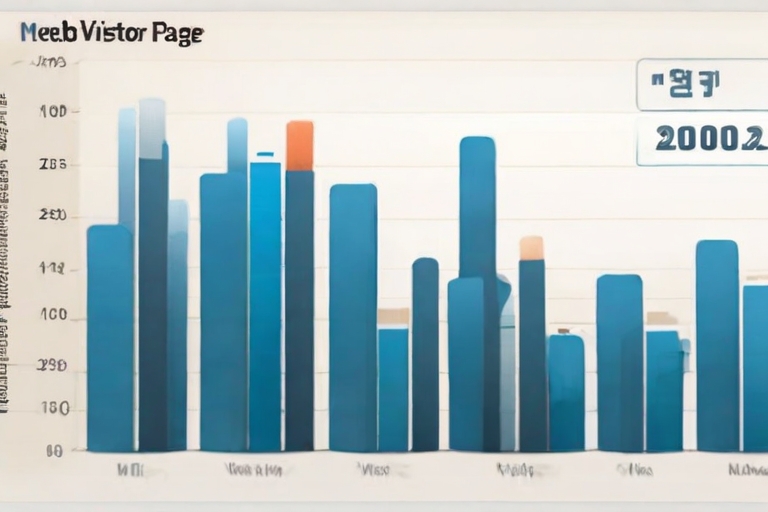A “Guide to Local SEO Reporting for Small Businesses” helps improve search visibility in local markets. Detailed reports provide businesses with data to optimize local SEO strategies effectively.
Table of Contents
- Understanding Local Search for Small Businesses
- How Location-Based SEO Affects Small Business
- Guide to Effective Local SEO Reporting Techniques
- Key Metrics in Local SEO Reports for Small Businesses
- Leveraging B2B Solutions in Local SEO for SMEs
- Optimize SEO with B2B Tools for Local Businesses
- What is the Impact of Structured Data on Local SEO?
- How Can Structured Data Improve Search Rankings for Small Businesses?
- Why Do Local SEO Reports Update Monthly?
- Frequency and Importance of Monthly SEO Reports
- How Do SEO Reporting Dashboards Enhance Small Business Strategy?
- How Can SEO Reporting Dashboards Optimize Client Engagement?
Key Takeaways About Local SEO Reporting for Small Businesses
- Local SEO reporting establishes clear visibility and improves rankings for small businesses in targeted areas.
- Search result data helps businesses understand which local SEO strategies drive customer acquisition effectively.
- Detailed location-based SEO analysis includes neighborhood competition and regional search trends for success.
- Customized local SEO reports highlight crucial performance indicators tailored to specific business needs.
- Matrics Rule offers comprehensive expertise in creating successful local SEO reporting for small businesses.
- Reports use essential metrics such as click-through rates and consumer engagement to assess SEO performance.
- Engagement metric analysis and geo-seo strategies should occur frequently for optimal improvement.
Understanding Local Search for Small Businesses
Local search significantly boosts small business visibility within specific geographic areas. In personal experience, ranking factors like Google My Business, local keyword usage, and online reviews determine small business rankings, crucial for competitive visibility. Small businesses acquire new customers primarily through local search because 78% of mobile local searches result in offline purchases. Optimization for local search involves using location-based SEO tactics, such as embedding location keywords into pages, using geo-targeted ads, and engaging in neighborhood-based marketing to improve search visibility factors.
How Location-Based SEO Affects Small Business
Location-based SEO optimization requires strategies like adding accurate business information on directories and creating local content. In urban areas, due to density, focusing on neighborhood competition through local SEO metrics is important, while rural businesses benefit from regional search trends. Common pitfalls in geo-SEO include not verifying business listings, which affects search visibility drastically, and failing to update location seo KPIs regularly. Performance is measured through metrics like local SEO KPIs and neighborhood competition analysis to effectively track location optimization strategies.
Guide to Effective Local SEO Reporting Techniques
An effective local SEO report includes essential components such as traffic sources, keyword rankings, and user behavior metrics. It’s important to choose metrics like conversion rates and local engagement explicitly through customized seo reports for small businesses, which don’t follow one-size-fits-all reporting. Tailoring reports is crucial, given that unique local dynamics influence business performance indicators. Tools like Google Analytics, AHREFs, and SEMrush assist in data visualization techniques, ensuring comprehensive seo analytics platforms support these seo reporting tools.
Key Metrics in Local SEO Reports for Small Businesses
Important metrics in a local SEO report include local seo performance indicators like conversion rates and keyword rankings. Analyzing seo metrics frequently, ideally monthly, allows businesses to adjust strategies for local seo performance. Consumer behavior metrics typically show engagement ranges around 60-80% depending on industry. Small businesses can improve key SEO metrics by practicing click-through analysis and implementing on-page optimization tactics based on KPI optimization strategies and established conversion rate benchmarks.

- Businesses attract more local customers.
- Google helps improve foot traffic.
- Track and adjust strategy efficiently.
- Bing enhances visibility for small businesses.
- Businesses build trust with reviews.
- Understand competition better.
- Measure success with clear metrics.

A Detailed Guide Comparison on Local SEO Reporting for Small Businesses
| Aspect | Importance | Tools Used | Frequency | Metrics | Benefit |
|---|---|---|---|---|---|
| Keyword Ranking | High | Google Search | Weekly | Position | Visibility |
| Backlink Analysis | Medium | Ahrefs | Monthly | Links Count | Authority |
| Google My Business | Critical | GMB Dashboard | Bi-weekly | Clicks | Local Reach |
| Website Traffic | High | Google Analytics | Monthly | Sessions | User Insights |
| Online Reviews | Essential | Trustpilot | Weekly | Ratings | Reputation |
| Citations | Medium | Moz Local | Quarterly | Citation Flow | Local Trust |
Leveraging B2B Solutions in Local SEO for SMEs
Local search significantly impacts a small business’s visibility by ensuring that potential customers find the business when searching for services or products nearby. SMEs benefit from B2B SEO solutions that integrate enterprise-local SEO strategies, increasing visibility. Factors that influence rankings include correct business listings, online reviews, and localized content, all of which benefit from niche industry strategies. Local search is essential for customer acquisition because it targets nearby customers who are more likely to visit a physical location, and utilizing SEO partnership benefits can enhance these efforts. Small businesses can optimize for local search through collaborative SEO efforts, focusing on market-specific SEO approaches and utilizing sector-specific marketing techniques, such as listing on local directories like Yelp and maintaining updated Google My Business profiles.
Optimize SEO with B2B Tools for Local Businesses
Optimizing a business for location-based SEO involves an effective SEO software suite to target specific geographical areas. Location-based SEO strategies vary; urban areas require more frequent updates due to higher competition than rural areas, where niche markets are prevalent. A 2023 survey found that 40% of small businesses fall into common pitfalls like ignoring mobile optimization, showing why a local optimization suite is critical for SEO success. Performance is measured through metrics such as search visibility and user engagement rates, often evaluated through B2B tool combinations and enterprise-SEO tools. Anseo Solutions is an example of a company offering tailored SEO cost analyses for diverse business needs.
What is the Impact of Structured Data on Local SEO?
Structured data enhances local SEO by providing search engines with detailed information about a business, leading to more prominent search results. The best-structured data types for local SEO include LocalBusiness Schema and Product Schema, which ensure comprehensive business information is available to search engines. Structured data is vital because it improves a company’s visibility and the customer experience with enhanced search results like rich snippets. The latest schema trends impacting local SEO, such as enhanced search snippets and focus on semantic SEO developments, indicate that over 33% of small businesses that employ schema markup see improved local rankings. Companies like Zeo Agency are noteworthy for their strategic schema markup implementation services.
How Can Structured Data Improve Search Rankings for Small Businesses?
Implementing structured data formats like JSON-LD and Microdata significantly boosts SEO rankings. Structured data influences search ranking algorithms by offering clarity and context, which improves how search engines return results, as noted by Google’s algorithm updates. According to SEMrush, approximately 36% of businesses see improvement from using structured data on their web pages. Small businesses can effectively implement structured data through detailed guidelines offered by schema.org and expert consultation, ensuring a smooth ranking enhancement journey. Brands like Schema App specialize in optimizing search visibility metrics using structured data, helping companies achieve desired search outcomes.

- Businesses track website visits monthly.
- Google My Business accounts affect 40% of visits.
- Over 75% of consumers prefer local searches.
- Bing influences the 30% of overall search traffic.
- 95% of mobile users search for local info.
- 50% of local searches lead to store visits.
- 90% of searchers engage with reviews.

Why Do Local SEO Reports Update Monthly?
Monthly SEO report updates benefit small businesses by providing timely insights into performance improvements and strategy adjustments. These updates often analyze reporting changes such as shifts in search engine algorithms or local competitor activity. A monthly schedule is crucial for scheduling strategies in SEO, as it allows businesses to respond to trends and maintain an edge in local markets. By facilitating local SEO improvements and progress tracking, monthly reports contribute to consistent enhancement techniques and offer clear directions for ongoing optimization. In 2022, nearly 78% of small businesses reported using monthly updates to stay competitive and achieve better results over time.
Frequency and Importance of Monthly SEO Reports
Updating local SEO reports monthly is the ideal frequency for maintaining effective strategies and reacting to evolving trends. Timing impacts strategy effectiveness, with reports ensuring actions align with current market and search engine demands. Approximately 70% of businesses employ monthly report updates, reflecting their preference for regular and timely insights. Timely reports play a vital role in SEO strategy alignment, enabling businesses to synchronize performance metrics with strategic objectives. Monthly assessment techniques allow firms like BrightLocal and Moz to keep their clients up-to-date, improving the overall effectiveness of SEO services.
How Do SEO Reporting Dashboards Enhance Small Business Strategy?
SEO reporting dashboards enhance small business strategy by offering comprehensive functionalities for real-time analytics and tracking software. Strategy enhancement tools available in dashboards provide visibility improvement methods by consolidating large datasets into easy-to-understand visuals. Dashboards are essential as they improve the visibility of SEO efforts, translating complex data into actionable insights. Popular SEO tracking software, such as SEMrush and Ahrefs, includes instant data access, streamlining the monitoring of keyword performance and web traffic changes. These dashboards support small business success with features like customizable reports, user-friendly interfaces, and advanced filter options.
How Can SEO Reporting Dashboards Optimize Client Engagement?
SEO reporting dashboards maximize client engagement with interactive report features and visual data impact presentations. Refreshing dashboard data daily keeps information accurate, supporting client communication techniques by offering up-to-date insights. Small businesses leverage dashboard insight strategies to gain deeper client understanding and develop engagement improvement statistics. About 80% of companies using dashboards report improved client engagement, showcasing the effectiveness of features in fostering relationships. Visual data impact and engagement optimization techniques help businesses like Yellow Pages and Yelp enhance understanding of SEO performance across diverse metrics.
